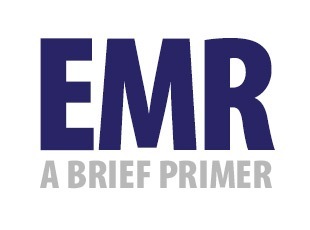EMR, E-Mod, MOD Rate, Experience Rating—whatever you call it, your experience modifier rate affects much more than your annual insurance cost. Understanding and lowering an EMR is pivotal for organizations looking to reduce costs and even gain more bids from the government.
Do you know your company’s EMR? Do you know what it means for your company? If it’s over 1.0, do you know what it means and what your company can do to lower it?
A Simple Definition of EMR
The Experience Modifier Rate, or EMR, is a numeric representation of a business’ claims history and safety record as compared to other businesses in the same industry, within the same state (ADP Guide to Workers’ Compensation Insurance). For example, a roofing contractor in Illinois will be compared to other roofing contractors in Illinois.
Simple, no? All in all, much like any insurance factor, it basically states one of three things:
- This company is riskier than average (EMR > 1.0)
- This company is no more or no less risky than average (EMR = 1.0)
- This company is safer than average (EMR < 1.0)
How EMR is Calculated
EMR is calculated using the basic formula (EMR = Actual Claims/Expected Claims).
However, the idea is much deeper than that. Using data reported to the National Council on Compensation Insurance for the past five years, calculating agencies use claim data from three years ending one year prior.
Example: An employer with a policy that renews on January 1, 2015, will generally have an experience rating that uses the loss experience that occurred during policies that were effective 1/1/11–1/1/12, 1/1/12–1/1/13, and 1/1/13–1/1/14
From here, each claim is analyzed, and the EMR calculated using different values in different steps in the EMR Worksheet. For more information on the worksheet, view the EMR Worksheet Webcast from NCCI.
Major considerations in the analysis include the amount of incidents, the type of incident (medical vs. time lost), and the amount of money in each incident. For full breakdown of the calculation, learn more about how to read an EMR Statement from NCCI’s The ABC’s of Experience Rating.
What the Number Means to Insurance Premiums
Combined with the job code, the payroll, and the premium itself, the EMR is the calculation applied to evaluate the final premium total. A company with an EMR of 1.25 will pay 25% higher premiums than the average company does, and a company with 0.80 will pay 20% less per dollar than average.
Taking this into consideration, an example:
- Company A (Modifier of 1.25) with premium of $126,340 pays modified premium of $158,581
- Company B (Modifier of 0.8) with same premium pays $101,072.
This difference of $57,509 makes quite the difference in an organization’s long term strategy.
Maximize Your Return on Safety: How to Lower EMR
Lowering your Experience Modifier Rate is a long process that starts with a safety plan, actionable steps to improve safety, and training to ensure that employees are safe on the job. Set realistic goals and work tirelessly to lower the frequency and severity of injuries.
This is where Optimum Safety Management can step in to help. Through our work with your organization, we can recognize through our 30-point gap analysis the opportunities for improvement and steps to maximize safety, productivity, and profitability—Your Return on Safety.
Contact Optimum Safety Management today to see how we can help.








